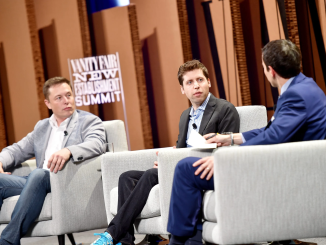
President Donald Trump, on Sunday, mentioned the possibility of the United States establishing “a joint venture” with TikTok. This statement arose amidst ongoing debates about the popular social media platform’s future in the U.S. due to national security concerns. Trump’s remarks have sparked both curiosity and controversy, reflecting the complex nature of the situation.
TikTok, owned by the Chinese company ByteDance, has faced scrutiny from U.S. officials who worry about potential data breaches and Chinese government access to user information. The Trump administration has argued that such risks pose threats to national security. Consequently, the government sought ways to mitigate these risks, including a potential ban or sale of TikTok’s U.S. operations.
The idea of a joint venture introduces a new angle to the conversation. Trump suggested that the U.S. could collaborate with TikTok in a way that addresses security concerns while maintaining the app’s presence in the American market. He emphasized the importance of safeguarding user data and ensuring transparency in its operations.
A joint venture could involve American companies acquiring partial ownership or forming a partnership with TikTok. This arrangement would allow the U.S. to have greater oversight of the platform’s data and operations. Some experts believe this approach might satisfy both the administration’s security demands and the public’s desire to continue using the app.
However, the proposal is not without challenges. Negotiating a joint venture would require significant cooperation between ByteDance, the U.S. government, and potential American partners. It also raises questions about how much control each party would have and whether the agreement could effectively resolve security concerns.
Critics argue that even a joint venture might not fully eliminate risks. Others worry about the precedent such an arrangement could set for handling foreign-owned companies in the U.S. Additionally, concerns about government intervention in private business dealings have added to the debate’s complexity.
Supporters of the joint venture idea highlight its potential benefits. It could preserve TikTok’s operations in the U.S., protecting thousands of jobs associated with the platform. Furthermore, it might ease tensions between the U.S. and China while addressing security concerns in a more collaborative manner.
TikTok’s user base, consisting mainly of young Americans, has expressed strong opposition to the possibility of a ban. Many users have rallied on the platform to voice their opinions, showcasing TikTok’s cultural influence and its role in digital communication.
The Trump administration’s approach to TikTok reflects broader concerns about U.S.-China relations and the role of technology in national security. The situation underscores the growing importance of balancing innovation, security, and international cooperation in an interconnected world.
As discussions continue, the idea of a joint venture remains uncertain. It represents an innovative solution but also poses significant challenges. Ultimately, the future of TikTok in the U.S. will depend on the outcomes of these negotiations and the ability of all parties to reach a mutually beneficial agreement.


